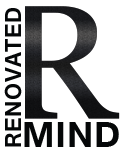Exploring the Depths of the Mind: Unraveling Its Mysteries
The human mind, an intricate web of thoughts, emotions, and consciousness, has fascinated philosophers, scientists, and artists alike for centuries. It is the seat of our identity, the source of our creativity, and the engine behind our actions. Yet, despite its central role in defining our existence, the mind remains a realm largely uncharted and mysterious.
The Nature of the Mind
At its core, the mind encompasses a vast array of functions, from perception and memory to reasoning and decision-making. It is both biological and psychological, shaped by our genetics, experiences, and environment. Neuroscientists study its physical manifestations through the intricate circuitry of the brain, while psychologists delve into its cognitive and emotional dimensions.
Consciousness: The Window to Self-Awareness
One of the most profound aspects of the mind is consciousness. It is through consciousness that we experience the world, reflect on our thoughts, and perceive our own existence. What exactly constitutes consciousness and how it arises from the brain’s activities continue to be topics of intense debate and research. From the vivid dreams of REM sleep to the altered states induced by meditation or psychedelics, consciousness reveals its myriad forms and depths.
Memory: The Tapestry of Experience
Memory, another cornerstone of the mind, weaves together the fabric of our personal histories. It is not merely a repository of past events but a dynamic process of encoding, storing, and retrieving information. From the vivid recollection of significant life events to the subtle nuances of learned skills, memory shapes our identities and guides our behaviors.
Emotions: The Colors of Experience
Emotions add hues to the canvas of the mind, coloring our perceptions and influencing our decisions. From the joy of success to the sorrow of loss, emotions provide a rich tapestry of human experience. Psychologists study their origins and impact, exploring how they interact with cognition and behavior to shape our social interactions and personal well-being.
The Mind-Body Connection: Bridging Two Realms
The relationship between the mind and body is another frontier of exploration. How do our mental states influence our physical health? How does physical well-being affect our mental outlook? The emerging field of psychoneuroimmunology explores these questions, revealing intricate connections between our thoughts, emotions, and physiological responses.
Beyond the Individual: Collective Minds and Cultural Dimensions
The study of the mind extends beyond individual experiences to encompass collective phenomena. Cultural psychologists examine how cultural beliefs and practices shape mental processes, influencing everything from language acquisition to moral reasoning. Social psychologists explore how group dynamics and social norms influence individual behavior, shedding light on the interplay between the individual mind and societal structures.
Challenges and Future Directions
Despite remarkable advancements, the mind remains a complex and enigmatic realm, posing enduring challenges to researchers and theorists. Ethical considerations in neuroscience, the nature of consciousness, and the development of effective treatments for mental health disorders are just a few of the pressing issues facing the field.
Conclusion
In the ceaseless quest to understand the mind, humanity confronts both its limitations and its boundless potential. As we unravel its mysteries, we gain deeper insights into what it means to be human—exploring not only the complexities of cognition and emotion but also our shared journey of consciousness and self-discovery. In this exploration, the mind emerges not merely as a subject of study but as a profound reflection of our collective aspirations and endeavors.
As we continue to probe the depths of the mind, we move closer to unlocking its secrets and harnessing its power for the betterment of individuals and societies alike.

Leave a Reply